
Bertha Schwarz (1855-1947), often known by her stage name Bianca Bianchi, was a German coloratura soprano opera singer of the late 19th century. Her greatest successes were at Vienna.

Bertha Schwarz (1855-1947), often known by her stage name Bianca Bianchi, was a German coloratura soprano opera singer of the late 19th century. Her greatest successes were at Vienna.
Schwarz was born in Heidelberg on 27 January 1855, the daughter of actors who worked at nearby Mannheim. [1] As an opera singer, she was for many years a prominent member of the company of the Vienna Court Opera, where her fame was such that an asteroid discovered on 4 September 1880 was named 218 Bianca in her honour. [2] Two years later Johann Strauss II was inspired by her to compose his Frühlingsstimmen waltz for orchestra and solo soprano voice, [1] still familiar today.
Although based in Vienna, Bianchi sometimes performed in other cities of the German and Austrian empires, notably Hamburg, Karlsruhe and Budapest. In 1894, she married the impresario Bernard Pollini, who had been her manager. She died in Salzburg on 16 February 1947 aged 92.

Christa Ludwig was a German mezzo-soprano and sometime dramatic soprano, distinguished for her performances of opera, lieder, oratorio, and other major religious works like masses, passions, and solos in symphonic literature. Her performing career spanned almost half a century, from the late 1940s until the early 1990s.

Dame Olga Maria Elisabeth Friederike Schwarzkopf, was a German-born Austro-British lyric soprano. She was among the foremost singers of lieder, and is renowned for her performances of Viennese operetta, as well as the operas of Mozart, Wagner and Richard Strauss. After retiring from the stage, she was a voice teacher internationally. She is considered one of the greatest sopranos of the 20th century.
Bianca is a feminine given name. It means "white" and is an Italian cognate of Blanche.

Charlotte "Lotte" Pauline Sophie Lehmann was a German-American lyric soprano noted for her successful performances with international opera houses, on the recital stage and in teaching.She gave memorable appearances in the operas of Richard Strauss, Richard Wagner, Ludwig van Beethoven, Puccini, Mozart, and Massenet. The Marschallin in Der Rosenkavalier, Sieglinde in Die Walküre and the title-role in Fidelio are considered her greatest roles. During her long career, Lehmann also made almost five hundred recordings in both opera and art song.
Bianchi, a plural of bianco, is an Italian surname. Notable people with the surname include:

"Frühlingsstimmen", Op. 410 is an orchestral waltz, with optional solo soprano voice, written in 1882 by Johann Strauss II.

Bianca is a sizeable Main belt asteroid. It is an S-type asteroid. It was discovered by Johann Palisa on 4 September 1880, in Pola and was named after the Austro-Hungarian opera singer Bianca Bianchi. The Vienna newspapers contained several published accounts of the circumstances surrounding the honor extended to the diva in Spring 1882. In the late 1990s, a network of astronomers worldwide gathered lightcurve data that was ultimately used to derive the spin states and shape models of ten new asteroids, including (218) Bianca. The shape model for this asteroid is asymmetrical.

Ljuba Welitsch was an operatic soprano. She was born in Borisovo, Bulgaria, studied in Sofia and Vienna, and sang in opera houses in Austria and Germany in the late 1930s and early and mid-1940s. In 1946 she became an Austrian citizen.
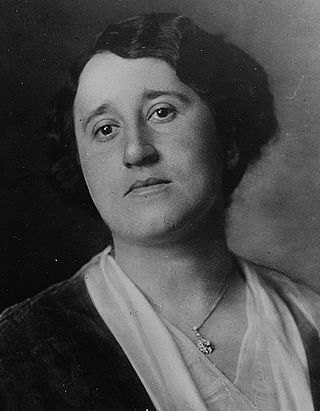
Melanie Kurt was an Austrian opera singer.
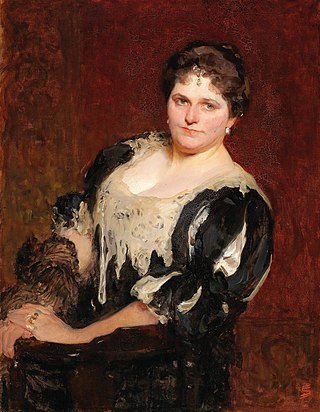
Blanche Marchesi was a French mezzo-soprano and voice teacher best known for her interpretations of the works of Richard Wagner. She was the daughter of Mathilde Graumann Marchesi, a German voice instructor who taught a variety of well-known opera singers, including Emma Eames, Nellie Melba, and Emma Calvé.

Marie Wilt was an Austrian dramatic coloratura soprano. Possessing a wide vocal range with a significant amount of power and flexibility, Wilt sang a wide repertoire that encompassed the operas of Wolfgang Amadeus Mozart, the German operas of Richard Wagner, the grand operas of Giuseppe Verdi, and the bel canto operas of Bellini, Rossini, and Donizetti. She sang for many years at the Vienna Hofoper and for a number of seasons at the Royal Opera House, Covent Garden in London. She notably portrayed the role of Sulamith in the world premiere of Karl Goldmark's Die Königin von Saba in 1875. Also a regular performer of the concert repertoire, Wilt often appeared in performances of works by Beethoven, Haydn, and Mendelssohn.
Bianca Bianchi may refer to:
Gertrud Bertha Schoenberg was an Austrian opera librettist. She was the second wife of Austrian composer Arnold Schoenberg, whom she married in 1924, and the sister of his pupil, the violinist Rudolf Kolisch.

Vera Schwarz was an Austrian soprano, known primarily for her operetta partnership with Richard Tauber.
Ruthilde Boesch, born Ruthilde Klösterer, married also Ruthilde Loibner was an Austrian soprano in opera, operetta, song and concert, and a vocal pedagogue. She was a member of the Vienna State Opera for decades, and later an influential voice teacher.
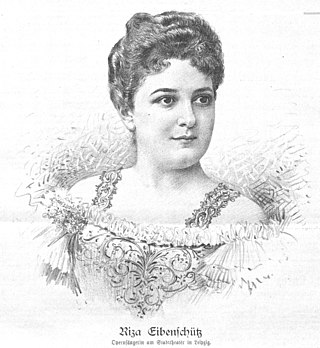
Riza Eibenschütz, married name Riza Malata,, was an Austrian operatic soprano and contralto.
Mathilde Fröhlich was an Austrian operatic soprano.
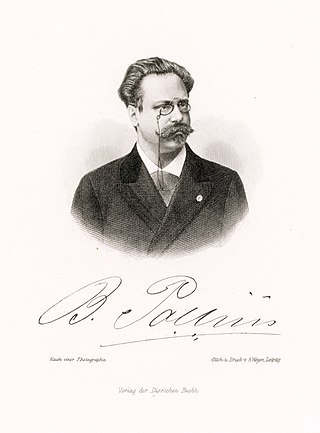
Bernhard Pollini, real name Baruch Pohl, was a German operatic tenor, and opera director.
Carl Bissuti was an Austrian operatic bass
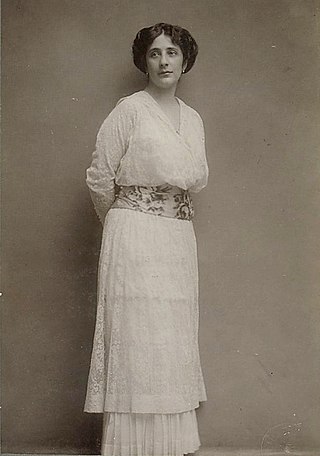
Bella Paalen, real name Isabella Pollak was an Austrian-American operatic soprano of Hungarian origin. She was engaged for 31 years at the k.-k. Hofoper in Vienna, later the State Opera, was appointed Kammersängerin there in 1933 and had to leave the country after the Anschluss because of her Jewish origins.